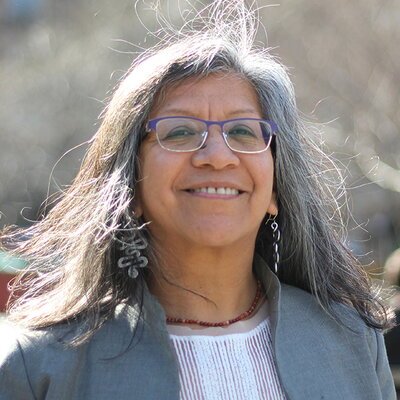
2024-2025 |

Dr. Pamela Calla is a Bolivian anthropologist and Visiting Scholar at CLACS from New York University, where she is a Clinical Professor. Her work focuses on gender, race, class, and state formation in Latin America. She coordinates the Feminist Constellations Platform and the Working Group on Racisms in Comparative Perspective at NYU. Dr. Calla has co-founded several anti-racist initiatives across the Americas and has published widely on racism, extractivism, and patriarchy in Bolivia.
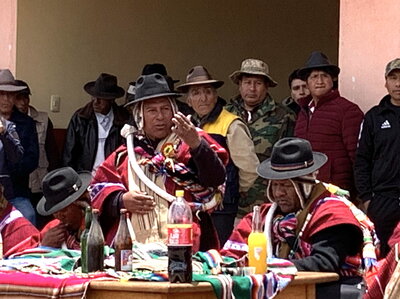
Clemente Asistiri Ochoa is an Aymara leader from Bolivia who recently served as head of the Indigenous Cabildo of Jesús
Machaca and visited CLACS to deliver a talk titled: "Indigenous Aymara Communities and the Political Crisis in Bolivia", where he shared his experiences and discussed the challenges confronting Indigenous communities in Bolivia.
2023-2024 |
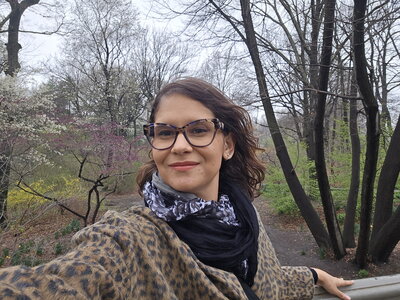
Viviane Viana de Souza: PhD candidate in Education with an emphasis in Curriculum at State University of Rio de Janeiro (ProPEd-UERJ).
Viviane is a Brazilian Visual Arts teacher and researcher, a visiting researcher at the University of Illinois through the Internationalization Program of the Coordination for the Improvement of Higher Education Personnel (CAPES-Print). Her doctoral research proposes a quantum approach to curriculum studies by exploring connections among art, feminisms, women artists, and teacher practice. Viviane holds a Visual Arts Licentiate's degree from the Federal University of Rio de Janeiro (2011) and a Visual Arts Master's degree from the same university (2013) and, has been a Visual Arts teacher at the Pedro II School's Visual Arts Department since 2013.
2022-2023 |
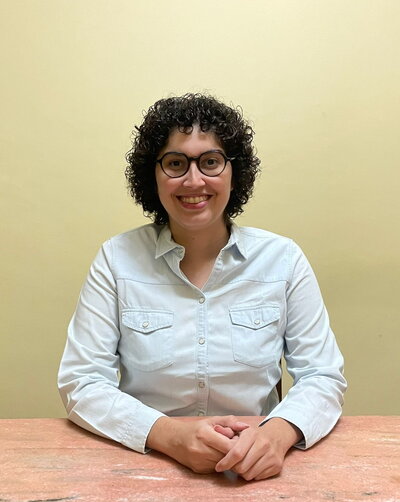
Gabriela Marta Marques de Oliveira: Ph.D. candidate in comparative history at the Federal University of Rio de Janeiro (PPGHC-UFRJ).
Gabriela Marta Marques de Oliveira holds a Bachelor of Arts degree in History from the State University of Campinas (2017) and a Master's degree in Physical Education and Society from the same university (2020). Currently, she is pursuing a Ph.D. in comparative history at the Federal University of Rio de Janeiro (PPGHC-UFRJ).
In her doctoral research, Gabriela focuses on the comparative analysis of how sports were utilized by the societies of São Paulo and Recife, Brazil, during the Republic's early years. Her study examines how these societies employed sports to portray themselves as modern entities, as well as the impact that discussions surrounding race and eugenics had on this process. Her research interests extend to various areas, including the history of sports, particularly football, the history of the Republic of Brazil, labor history, and health history.
Gabriela is an active member of the Corpo e Educação research group at the University of Campinas (Unicamp).
Bacharel e Licenciada em História pela Universidade Estadual de Campinas (2017). Mestre em Educação Física e Sociedade pela mesma universidade (2020). Doutoranda em História Comparada na Universidade Federal do Rio de Janeiro (PPGHC-UFRJ). No doutoramento, procura analisar comparativamente como os esportes foram utilizados pelas sociedades paulistana e recifense, no início da República, a fim de que parecessem modernas, e as implicações que os debates sobre raça e higiene tiveram nesse processo. Possui interesse pelos seguintes temas: história do esporte - notadamente do futebol; história do Brasil República; história do trabalho e história da saúde. Membro do grupo de pesquisa Corpo e Educação (Unicamp).
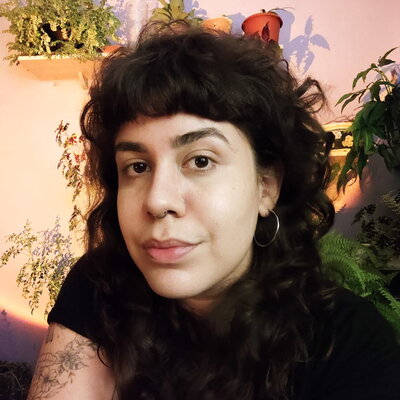
Isadora Lira: Ph.D. candidate in the Sociology department at the Federal University of Paraíba (UFPB).
Isadora Lira is a Brazilian researcher with a Master's in communication. She is currently a visiting researcher at the University of Illinois through the Internationalization Program of the Coordination for the Improvement of Higher Education Personnel (CAPES-Print) to map social markers of difference in the network of influence in Brazilian political groups on Twitter, from feminist, critical technology and decolonial studies perspectives. This work is part of the doctorate in Sociology progress in Federal University of Paraiba (UFPB), which investigates how political sociabilities are constructed on and by digital platforms, focused on Twitter. Since her master's degree, Lira has been engaged in research on critical perspectives on technology, and now focusing on the inference of algorithmic mediations in political communication. She currently participates in the Online Conflict Observatory, a network formed by researchers in several states of Brazil, based at the Federal University of ABC Paulista (UFABC) and the Study Group on American Feminist Criticism (GRIFES / UFPB).
Isadora Lira é uma pesquisadora brasileira com mestrado em comunicação. Atualmente é pesquisadora visitante da Universidade de Illinois através do Programa de Internacionalização da Coordenação de Aperfeiçoamento de Pessoal de Nível Superior (CAPES-Print) para mapear marcadores sociais da diferença na rede de influência em grupos políticos brasileiros no Twitter, de feministas , tecnologias críticas e perspectivas dos estudos decoloniais. Este trabalho faz parte do curso de doutorado em Sociologia da Universidade Federal da Paraíba (UFPB), que investiga como as sociabilidades políticas são construídas nas e pelas plataformas digitais, com foco no Twitter. Desde o mestrado, Lira tem se empenhado em pesquisas sobre perspectivas críticas sobre tecnologia, agora com foco na inferência de mediações algorítmicas na comunicação política. Atualmente participa do Online Conflict Observatory, rede formada por pesquisadoras em vários estados do Brasil, sediada na Universidade Federal do ABC Paulista (UFABC) e do Grupo de Estudos sobre Crítica Feminista Americana (GRIFES/UFPB).

Leonor Riesco: PhD in History from Chile.
Leonor Riesco is a Chilean historian with a Master's degree in Humanities and Art. She specialized in social and cultural studies of Chile in the 19th century, with a particular emphasis on managing conflicts and scandals by the elite. She has been part of various project teams focused on research, conservation, and dissemination of national heritage. In recent years, she has dedicated herself to practicing and promoting the use of technology in humanistic research. She studied Digital Humanities in Argentina and is currently the director of the Diploma in Digital Humanities at the Universidad Finis Terrae in Santiago de Chile. Her postdoctoral work focuses on American travelers and their travels in Chile during the 19th century, with the aim of creating an open access webpage to the sources of this genre and the results derived from the use of digital technologies (stylistics, georeferencing, and networks).
Contact: lritagle@gmail.com
Website: https://chilehd.cl/
https://uft-cl.academia.edu/LeonorRiesco
Leonor Riesco es chilena, Doctora en Historia y Master en Humanidades y Arte. Se ha especializado en los estudios sociales y culturales de Chile en el siglo XIX, con énfasis en el manejo de conflictos y escándalos por parte de la elite. Ha integrado diversos equipos de proyectos destinados a la investigación, conservación y difusión del patrimonio nacional. En los últimos años se ha dedicado a practicar y difundir la aplicación de la tecnología en la investigación humanista. Estudió Humanidades Digitales en Argentina y actualmente es directora del Diplomado en Humanidades Digitales de la Universidad Finis Terrae (Santiago de Chile). Su trabajo postdoctoral trata los viajes y viajeros norteamericanos en Chile durante el siglo XIX, con el propósito de crear una página web de acceso abierto a las fuentes de este género y a los resultados derivados del uso de tecnologías digitales (estilometría, georreferencias y redes).
2021-2022 |

Rebecca Smyth: Lecturer at Birmingham City University's School of Law in the UK.
She completed her PhD at the University of Edinburgh. Her research focuses on access to abortion in El Salvador and the Republic of Ireland and undertakes an intersectional feminist approach to international human rights law to explore the interplay between transnational feminist activism around reproductive freedom on the one hand and the inter-American, European and UN human rights systems' approaches to sexual and reproductive health and rights on the other.
2020- 2021 |
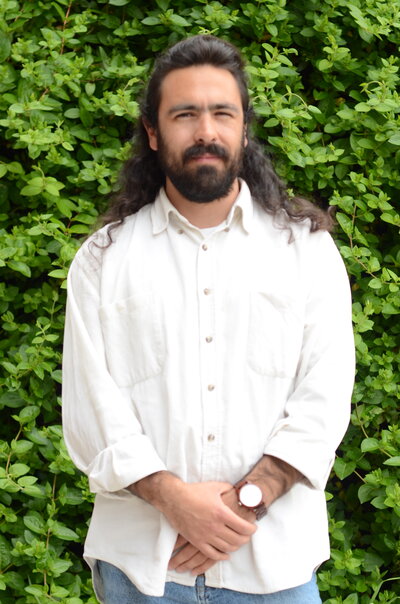
Estévez Rubín de Celis: Ph.D. in Political Science, Complutense University of Madrid, Spain
Dr. Estévez Rubín de Celis research focuses on the power of political ideas in institutional change. From an ideational perspective, he analyzes how and in what sense the dominant ideas about the functioning of the political system in Argentina changed from the Menemist to the Kirchnerist governments, with emphasis on the impact of these ideas on social policy.As a Ph.D. student, he was a visiting researcher at Instituto de Estudios de América Latina y el Caribe( University of Buenos Aires, Argentina), at the Universidad de la República (Uruguay) and at the Center for Latin American and Caribbean Studies (University of Illinois at Urbana-Champaign). Specialized in Latin American politics, his research interests include the relationship between populism and political institutions, social policy and redistribution, discourse theory and ideational school, and the relationship between political ideas and institutional changes. He is currently a researcher at the European Anti-Poverty Network (EAPN) in a randomized control trial model project that explores the reasons of the non-take up rates in the Spanish minimum income scheme. He is also an associate professor at the University of Nebrija, Spain.